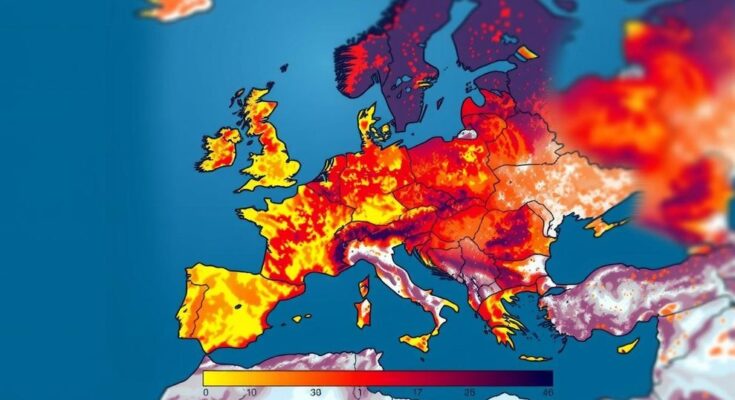The EU’s Copernicus Climate Change Service has projected that 2024 will become the hottest year on record, exceeding 1.5 degrees Celsius above pre-industrial levels. This alarming forecast comes in the wake of severe climate-related events and peaks in average global temperatures. The upcoming UN climate talks will address the urgent need for enhanced efforts to combat climate change, as the 1.5 degrees Celsius limit slips further out of reach.
The European Union’s Copernicus Climate Change Service (C3S) has declared that it is “virtually certain” 2024 will be the hottest year on record, with anticipated temperature increases of over 1.5 degrees Celsius above pre-industrial levels. This assertion precedes significant UN climate discussions, underscoring the urgency for nations to enhance efforts to reduce greenhouse gas emissions. Recent months have seen unprecedented climate-related disasters, including severe flooding and hurricanes, highlighting the immediate consequences of climate change. The phenomenon of rising global temperatures has reached alarming new heights. October 2024 was marked as the second hottest October recorded, trailing only 2023. Copernicus predicts that temperatures in 2024 will likely exceed 1.55 degrees Celsius above the 1850-1900 average, introducing serious implications for global climate policy and acknowledging the challenges of meeting the Paris Agreement targets to limit warming below 2 degrees Celsius, ideally under 1.5 degrees Celsius. Moreover, this impending record increase in temperature prompts concern regarding the impacts of climate change not just on global heating, but also on its derivatives such as severe weather patterns, increased rainfall, and persistent drought conditions affecting numerous regions, particularly in the United States. The data indicates that the current trajectory of climate policy may lead to a dire situation, with predictions of a potential 3.1 degrees Celsius rise this century without accelerated climate action.
Climate change poses one of the most significant challenges of our time, with its repercussions becoming increasingly evident. The rising global temperatures are thought to be primarily a result of fossil fuel consumption and other human activities that emit greenhouse gases. The Copernicus Climate Change Service provides critical analysis and monitoring of climate variables, using satellite data and other sources to deliver timely assessments regarding global temperature trends. The urgency of addressing climate change has been amplified by recent extreme weather patterns, such as intense storms and flooding, which are becoming more frequent and severe due to climate change.
In conclusion, the announcement by Copernicus regarding the likely record temperatures in 2024 underscores the escalating challenges associated with climate change. As global temperatures continue to rise signifying an alarming milestone, it is imperative that nations prioritize urgent actions to mitigate greenhouse gas emissions. The approach taken in the upcoming climate negotiations will significantly affect potential outcomes in global warming mitigation efforts, influencing the well-being of future generations.
Original Source: www.france24.com




